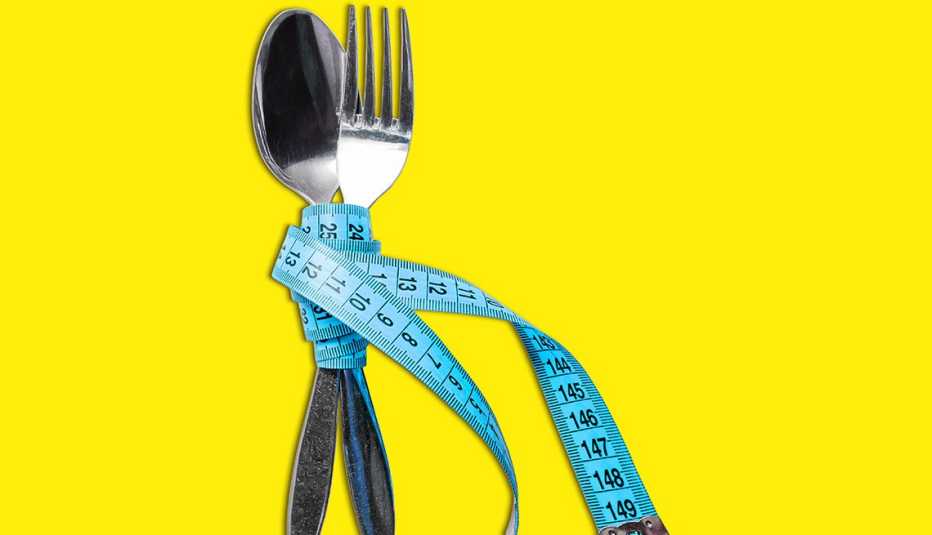AARP Hearing Center


If you want to improve your odds of living a longer, healthier life, new research suggests cutting a few hundred calories a day — a specialty coffee in the morning or a bag of chips at lunch — could do the trick.
A study led by researchers at the National Institutes of Health found that adults who reduced their daily caloric intake by 12 percent over a two-year span — or 240 calories a day on a 2,000-calorie daily diet — activated biological pathways associated with healthy aging. The reduction had a positive effect on the genes responsible for energy generation and metabolism, and reduced the activity of inflammatory genes, leading to lower inflammation.
“Since inflammation and aging are strongly coupled, calorie restriction represents a powerful approach to preventing the pro-inflammatory state that is developed by many older people,” study coauthor and National Institute on Aging Scientific Director Luigi Ferrucci, M.D., said in a news release. Indeed, chronic inflammation is linked to a number of age-related diseases, including Alzheimer’s disease, heart disease, type 2 diabetes and cancer.
For the study, published in the journal Aging Cell, researchers analyzed participant data from the CALERIE (Comprehensive Assessment of Long-Term Effects of Reducing Intake of Energy) clinical trial to assess whether moderate calorie restriction would convey the same benefits to humans as it does animals. (Animal studies show restricting calories can slow the progression of age-related diseases and, in some cases, prolong life span.) Studying genetic changes in muscle biopsies from 90 participants, researchers found that a 12 percent reduction in calories was enough to improve muscle health and stimulate healthy aging genes.
“A 12 percent reduction in calorie intake is very modest,” Ferrucci said. “This kind of small reduction in calorie intake is doable and may make a big difference in your health.”
Previous research from the CALERIE trial has found that calorie restriction can slow the pace of aging in adults by 2 to 3 percent — enough to reduce the risk of death by 10 to 15 percent. Other research indicates that cutting calories can decrease DNA damage and improve heart health, sleep and sexual function.
Calorie restriction is not a starvation diet, health experts stress. It’s reducing daily caloric consumption below what is typical (1,600 to 2,600 calories a day is considered the typical range for older adults) while still getting all the essential nutrients.
Researchers don’t know why this way of eating helps animals — and potentially humans — delay diseases brought on by aging. Scientists at the National Institute on Aging say more research is needed to understand the long-term effects of calorie restriction and its impact on longevity, especially in older adults.



































































More From AARP
How Healthy Are Your Cooking and Eating Habits?
See how many of these practices you already use
Losing Weight Can Be Good for Your Heart
And the benefits stick around, even if some weight is regained
10 Tips to Help You Curb Your Sugar Cravings
If you constantly crave cookies and candy, these science-backed tips can help you outsmart your sweet tooth